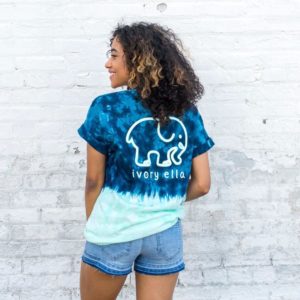Internet retailing is, somewhat paradoxically, both dominated by a single company—Amazon.com Inc.—and full of opportunities for entrepreneurs with good ideas and a passion for what they do. The 2017 edition of Internet Retailer’s Mid-Market 500, retailers ranked Nos. 501-1000 in the Top 1000, are a testament to the many ways upstarts can thrive.
The Mid-Market 500 merchants grew web sales collectively 13.7% in 2016 to $8.514 billion from $7.487 billion in 2015. That compares with 15.5% growth for the retailers ranked in the Internet Retailer 2017 Top 500.
But that Top 500 figure is skewed by Amazon’s 24.9% growth, which also contributed significantly to the 15.6% growth in U.S. online retail sales in 2016 reported in February by the U.S. Commerce Department. Without Amazon, the rest of the Top 500 grew by only 11.7%, well below their competitors in the 501-1000 range.
These Mid-Market 500 companies include 43 e-retailers making their first appearances in the Top 1000 rankings. Many of the newcomers appear in the rankings after having been in business just a few years. Of the 43 newcomers, 26 are digital natives that sell exclusively online. And they’re also the fastest growers: Those 26 e-retailers increased their web sales better than 45% in 2016, versus less than 34% for the other 17 newcomers.
A key reason newcomers keep appearing: Unlike the department store business or an industry like auto manufacturing, mining or insurance, the barriers to entry for e-retailing are relatively low. Selling goods online is not terribly capital-intensive and, comparatively speaking, is lightly regulated.

One of the many elephant-themed shirts at Ivory Ella.
Nor does a startup need a big marketing budget. Savvy e-retailers have found ways to make a name for themselves and acquire customers without spending millions of dollars. In fact, if done right, building an audience for a brand can cost virtually nothing if a retailer knows how to effectively utilize social media.
A good example of that is Ivory Ella LLC, whose founders, some of them college students when they launched the business two years ago, rely on marketing—for free—to their 60 million social media followers.
John Allen, CEO of Ivory Ella, recognizes that the low barrier to entry means he and his partners must be prepared to compete against equally ambitious, web-savvy entrepreneurs who are creating new online retail businesses every day. And what’s true for Allen, who is all of 24, is equally true for retailers and brands with storied names and long histories.
Old or new, success online will depend increasingly on creativity, and marketing unique products to the consumers most receptive to them.
The Mid-Market 500 report puts a spotlight on the retailers in the middle of the pack, many of them newcomers like Ivory Ella attuned to the new ways consumers—especially younger ones—are using the web, and crafting businesses that cater to today’s shoppers. Ranked between 501 and 1000 in the Internet Retailer Top 1000, these merchants for the most part aren’t trying to sell a wide variety of merchandise. They’re often succeeding by finding a niche largely neglected by larger players.
